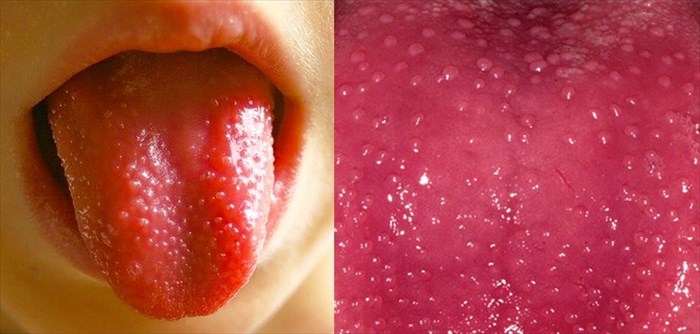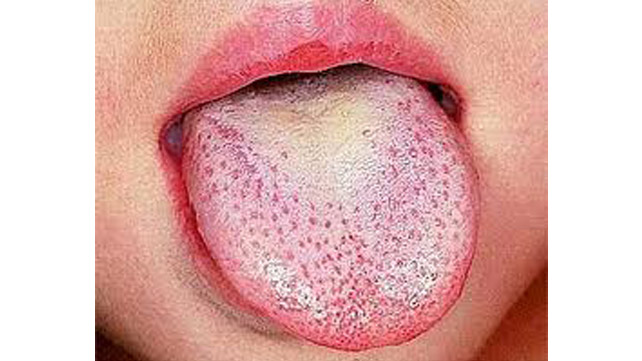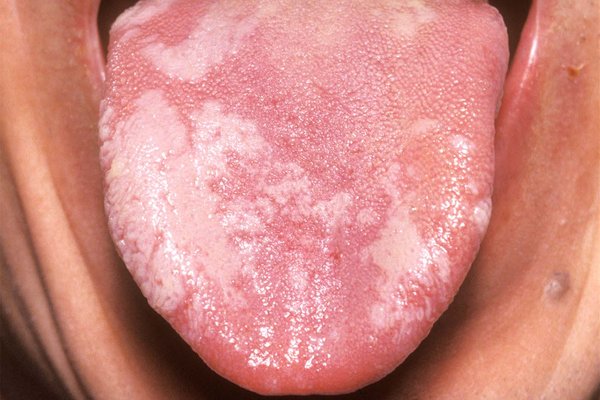Your body has a remarkable way of signaling when something’s off—and your tongue can be one of the most revealing indicators. Changes in color, texture, or coating on your tongue may offer valuable clues about your overall health, including vitamin deficiencies, infections, or other medical conditions.
While a change in appearance doesn’t always signal a serious problem, it’s helpful to know when you should consult a healthcare professional. Below are eight common tongue signs and what they may mean for your health—based on reputable medical sources.
1. Bright Red or “Strawberry” Tongue
A tongue that appears bright red, sometimes referred to as “strawberry tongue,” may indicate a vitamin deficiency, particularly vitamin B12 or iron. These nutrients are essential for healthy red blood cell production and nerve function. A deficiency can lead to a smooth, swollen tongue and discomfort when consuming hot or spicy foods.
Other possible causes include:
- Scarlet fever (if accompanied by a sore throat and fever)
- Kawasaki disease in children
- In rare cases, an allergic reaction
If you notice a persistent change in color, it’s advisable to get a blood test to evaluate your vitamin levels and overall nutritional status.
Source: Mayo Clinic
2. Black or Brown Discoloration
A black or brown-coated tongue may seem alarming but is often linked to benign causes such as:
- Poor oral hygiene
- Tobacco use
- Excessive coffee or tea consumption
- Certain medications (e.g., bismuth-containing antacids)
This condition, often referred to as black hairy tongue, results from a buildup of dead skin cells on the papillae (tiny projections on the tongue surface). The discoloration can be resolved through improved oral hygiene and by limiting contributing habits.
Source: American Dental Association
3. Thick White Coating
A thick, white coating on the tongue that resembles cottage cheese may be a sign of oral candidiasis, a yeast infection caused by the overgrowth of Candida albicans. This fungus naturally lives in the mouth but can grow excessively under certain conditions, including:
- Antibiotic use
- Diabetes
- Immunosuppressive conditions
- Poor-fitting dentures
In these cases, your dentist or healthcare provider may recommend antifungal treatments and addressing any underlying causes.
Source: Cleveland Clinic
4. Fissured (Cracked) Tongue
A fissured tongue, marked by deep grooves or cracks, is generally considered a normal variant and often becomes more pronounced with age. It is usually painless, though food debris can become trapped in the grooves, leading to irritation or secondary infections.
Occasionally, a fissured tongue may be associated with:
- Geographic tongue
- Sjögren’s syndrome
- Melkersson-Rosenthal syndrome (rare)
Maintaining proper oral hygiene, including gentle brushing of the tongue, can help reduce symptoms or discomfort.
Source: WebMD
5. White Patches or Spots That Don’t Go Away
Persistent white patches—especially if they appear thick or hard—may signal a condition known as leukoplakia. This condition is often linked to chronic irritation from:
- Tobacco use (smoking or chewing)
- Alcohol consumption
- Rough teeth or dental appliances
While leukoplakia itself is not cancer, some forms can carry precancerous changes. Therefore, any white patches that last more than two weeks should be evaluated by a dental or medical professional. A biopsy may be recommended.
Source: National Institutes of Health
6. Red Patches or Persistent Blisters
Red patches or blisters that do not resolve over time and are accompanied by pain may indicate an underlying issue, such as:
- Erythroplakia (a condition with a higher risk of developing into oral cancer)
- Viral infections like herpes simplex
- Autoimmune conditions
If these symptoms persist for more than two weeks, or are accompanied by difficulty swallowing, unexplained weight loss, or chronic pain, it’s essential to seek medical evaluation. Early detection of oral cancers or other systemic conditions greatly improves outcomes.
Source: American Cancer Society
7. Burning Sensation or Pain
A burning sensation on the tongue, often described as a scalding or tingling feeling, can be a symptom of burning mouth syndrome (BMS). This condition is more common in postmenopausal women and may be associated with:
- Hormonal changes
- Nutritional deficiencies (e.g., B12, iron)
- Allergies or reactions to toothpaste or dental materials
- Dry mouth or nerve dysfunction
Treatment varies depending on the underlying cause, so a medical consultation is recommended to determine the best approach.
Source: National Institute of Dental and Craniofacial Research
8. Bumps and Small Nodules
Most small bumps on the tongue are harmless and part of the tongue’s normal structure (papillae). However, newly developed or painful lumps, especially if they last more than two weeks, should be examined by a healthcare provider.
Potential causes of bumps include:
- Canker sores
- Allergic reactions
- Oral trauma (e.g., biting the tongue)
- Benign tumors (rare)
Occasionally, persistent nodules can be an early sign of oral cancer, so a timely evaluation is key.
Source: Johns Hopkins Medicine
When to See a Doctor or Dentist
While many tongue changes are benign and short-lived, it’s important to track any symptoms that:
- Persist for more than 14 days
- Are painful or worsening
- Affect eating, speaking, or swallowing
- Are accompanied by systemic symptoms like fever, fatigue, or swollen lymph nodes
Regular dental checkups and oral cancer screenings are vital, especially for individuals with risk factors like tobacco or alcohol use.
Conclusion
Your tongue can be a surprisingly accurate indicator of your health. Changes in color, texture, or coating may reflect anything from mild dietary deficiencies to more serious conditions. By paying attention to these signs and maintaining good oral hygiene, you can catch potential issues early and consult a healthcare provider for proper diagnosis and treatment.
Staying proactive about your health means listening to your body—and sometimes, your tongue may have something important to say.




